By clicking a retailer link you consent to third-party cookies that track your onward journey. This enables W? to receive an affiliate commission if you make a purchase, which supports our mission to be the UK's consumer champion.
Best pressure cookers, tested and reviewed
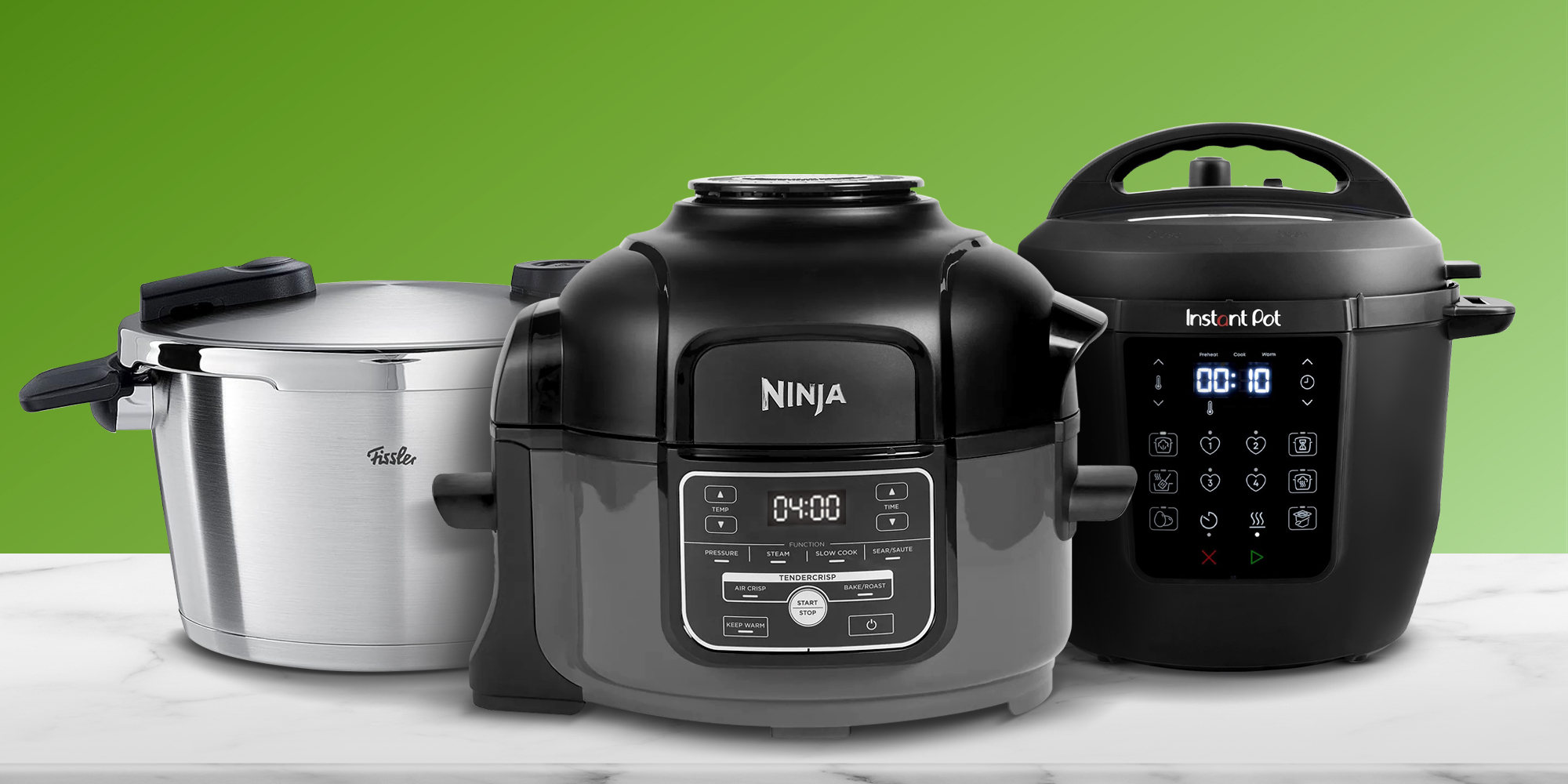
The best pressure cookers are easy to use and quickly produce delicious food, whether they're classic stove-top pressure cookers or modern plug-in electrics.
They work by sealing tightly and allowing high-pressure steam to build up during cooking, raising the temperature inside the pot to above the boiling point of water. This makes food cook more quickly.
Our tests investigate how effectively they cook, how easy they are to use, how smoothly they release steam and other need-to-knows if you're thinking of buying.
We've tested stove-top and electric pressure cookers from bestselling brands, such as Ninja, Instant-Pot, Prestige, Tefal, Tower and more. We've found three Best Buys, one of which also gets our Great Value recommendation. And the overall best pressure cooker from our tests might surprise you.
How our tests find you the best
We've tested 17 pressure cookers
We stew, sample, and judge - because no one wants a casserole with rock hard potatoes or a thin, soupy sauce.
Ease of use
From tricky lids to confusing controls, we check how easy it is to use each pressure cooker, so you don’t need a manual every step of the way.
Steam release
Is it a gentle hiss or a kitchen geyser? We test how each cooker handles steam so that your countertops stay splatter-free.
We also test...
From scratch resistance to storage and energy use, we check the little things that make a big difference in everyday cooking.
The pressure cookers we tested
The biggest brands and most popular 10 pressure cookers are listed below.
Only logged-in Which? members can view the pressure cookers test results.
Join Which? to get instant access to our test results and Best Buy recommendations.
| Pressure cooker | Price | Score | Type | Ease of use | Steam release | Maximum usable capacity |
|---|---|---|---|---|---|---|
Sign up to reveal Get instant access to this and all our scores and recommendations Unlock tableDigital £8.99 per month, cancel any time. Already a member? Log in | 89% | Electric | ||||
| 89% | Stove-top | |||||
| 89% | Electric | |||||
| 87% | Stove-top | |||||
| 87% | Electric | |||||
| 87% | Stove-top | |||||
| 86% | Electric | |||||
| 79% | Electric | |||||
| 79% | Electric | |||||
| 76% | Stove-top |
Sign up to reveal
Get instant access to this and all our scores and recommendations
Unlock tableDigital £8.99 per month, cancel any time.
Already a member? Log in
Date tested: September 2025 & November 2023. Page last checked: November 2025. We are not able to show every retailer, and cheaper prices may be available. We've tested 17 pressure cookers in total, but the table shows our top picks only.
A selection of the pressure cookers we tested is listed in alphabetical order below.
Only logged-in Which? members can view the best pressure cookers from our tests.
Join Which? to get instant access to our test results and Best Buy recommendations.
Cosori Pressure Cooker Electric 5.7L
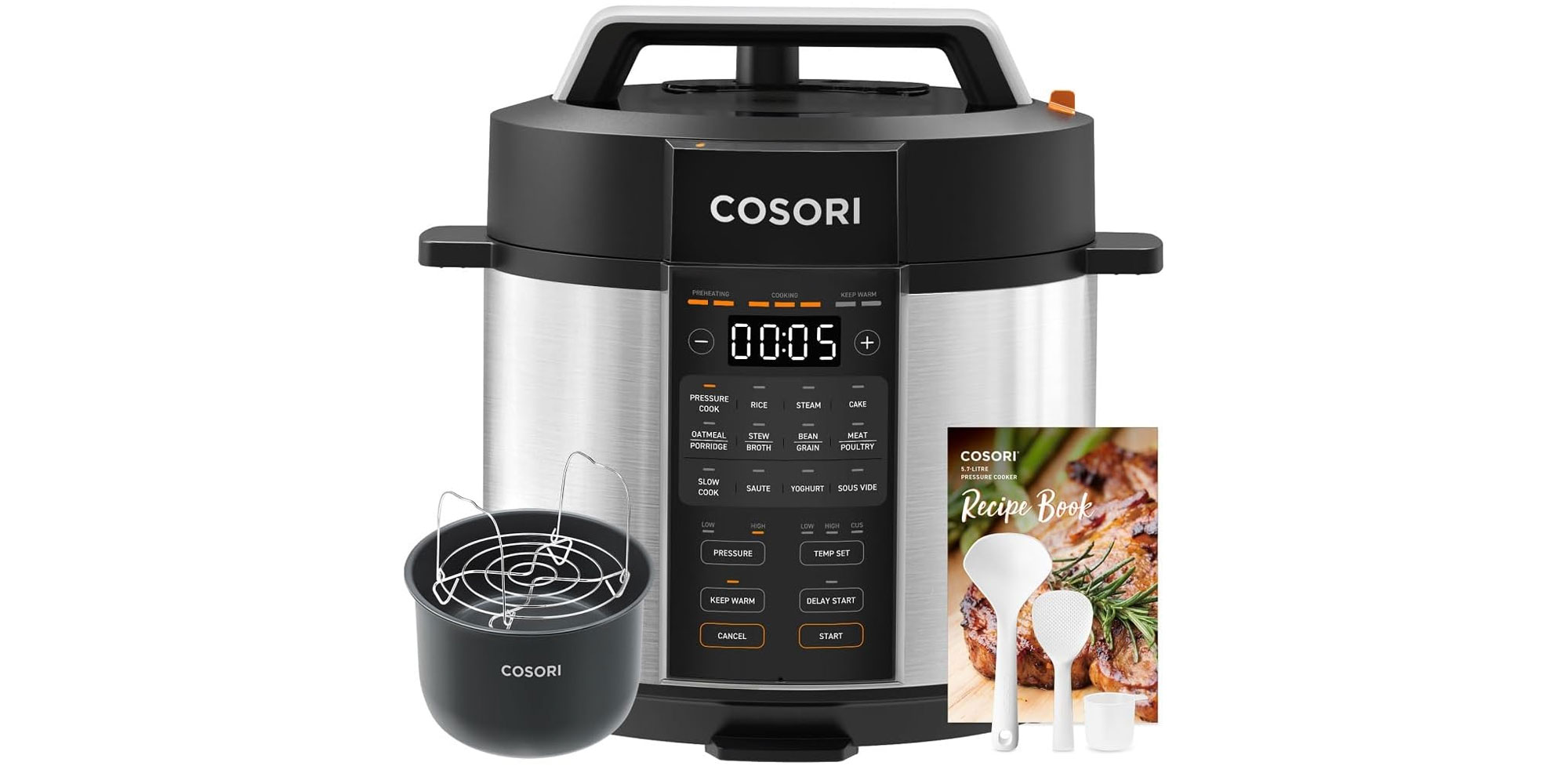
Most recently tested September 2025
Type Electric
Size and weight 31.7 x 34 x 32 (HxWxD); 5.4kg
Minimum and maximum usable capacity 0.25 litres; 3.8 litres
Need to know Accessories are dishwasher safe, two pressure levels, two-year warranty, comes with a ladle, spatula, trivet, measuring cup
Drew & Cole Pressure King Pro 4.8L Digital Pressure Cooker
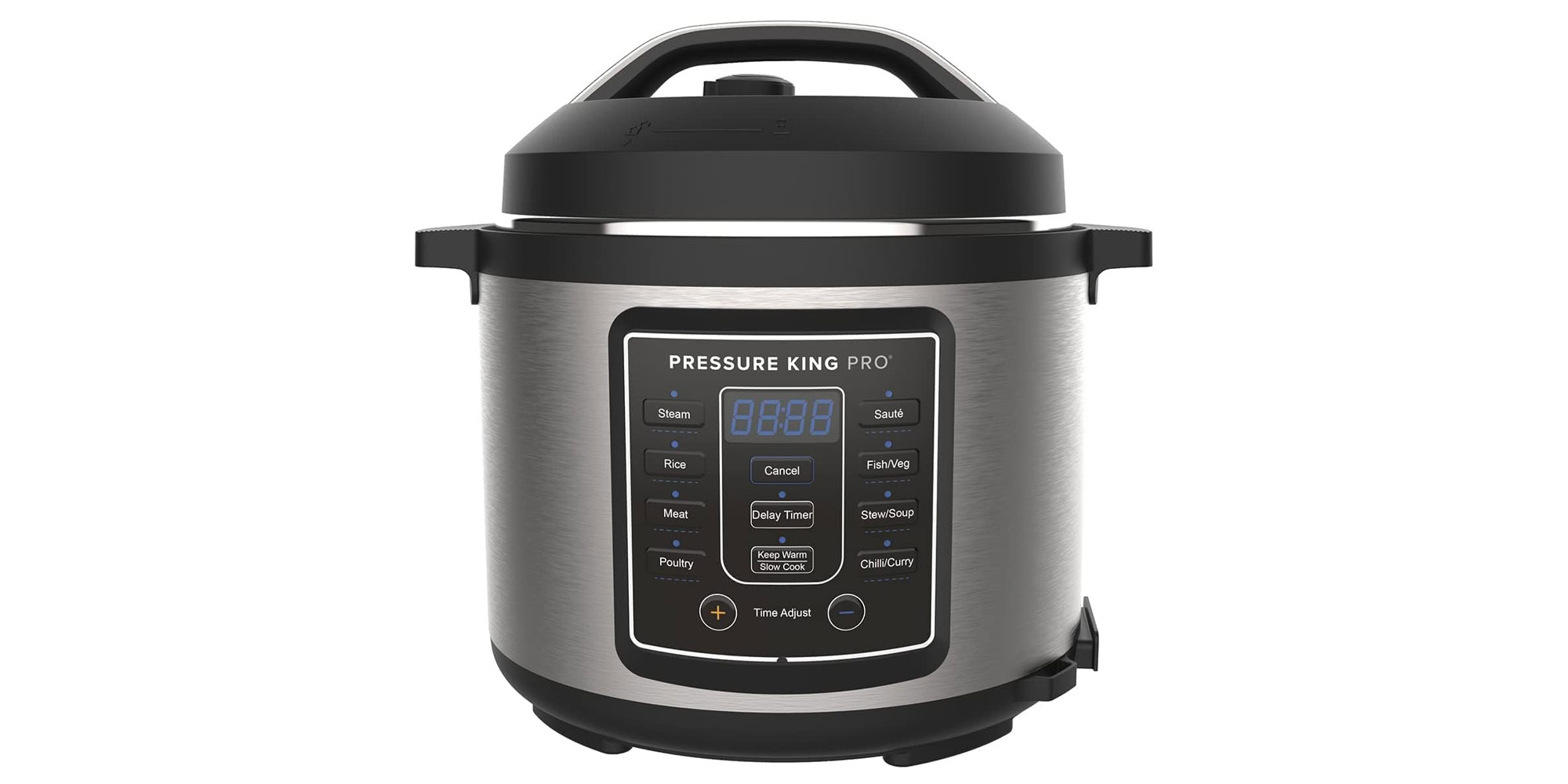
Most recently tested September 2025
Type Electric Size and weight 31 x 32 x 32 (HxWxD); 4.8kg
Minimum and maximum usable capacity 0.5 litres; 3.8 litres
Need to know Inner pot is dishwasher-safe, preset pressure levels, one-year warranty, comes with a steamer tray
Fissler Vitaquick Premium 4.5L Pressure Cooker
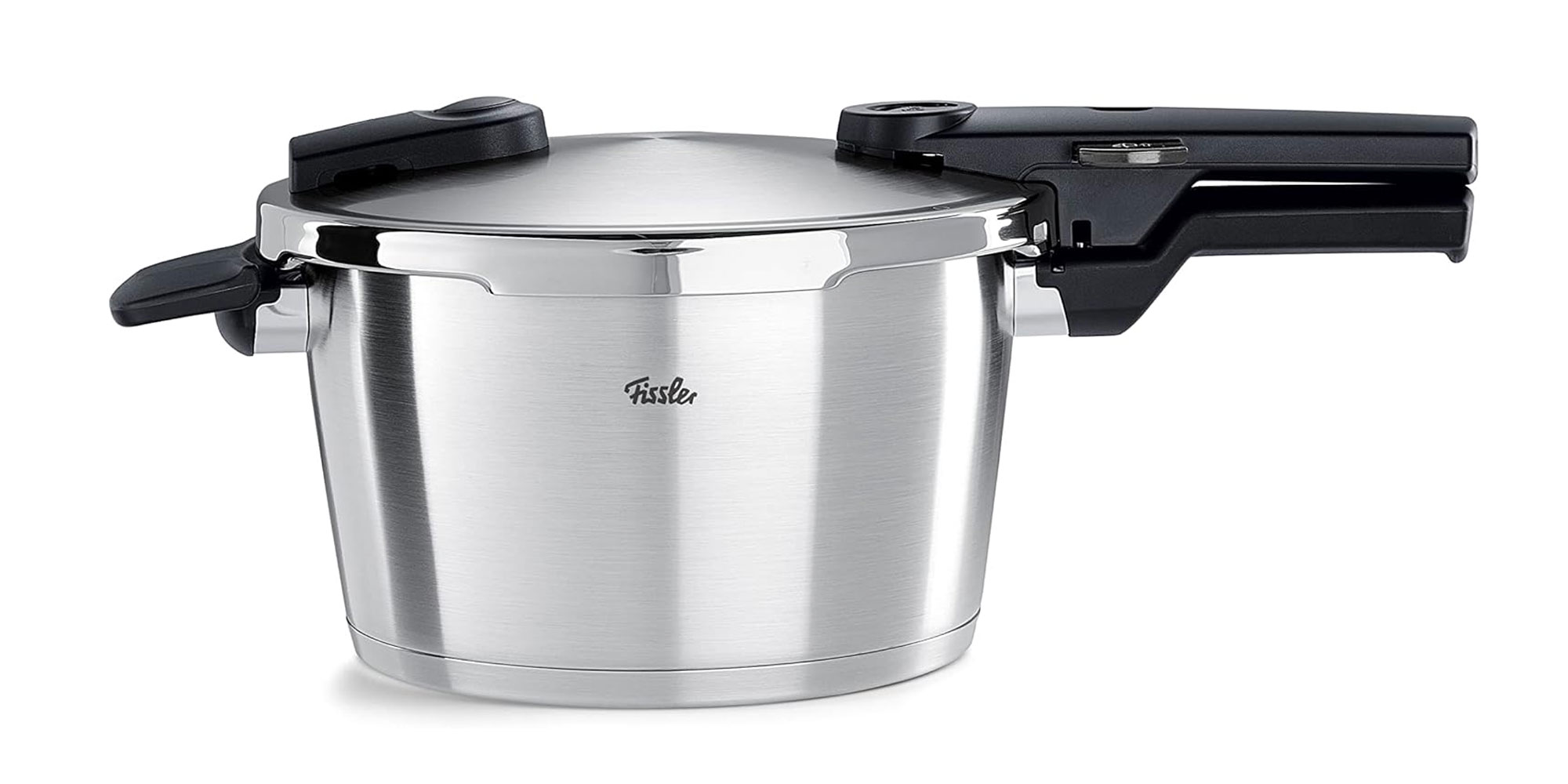
Most recently tested September 2025
Type Stove-top
Size and weight 18.0 x 42.5 x 25.5 (HxWxD); 2.8kg
Minimum and maximum usable capacity 0.25 litres; 3.0 litres
Need to know Works with electric, gas, ceramic, halogen, induction and solid hotplate hobs, dishwasher-safe, two pressure levels, 10-year warranty, cooking time suggestions included
George Home Metallic Black 5.5L 1000W Pressure Cooker

Available from Asda (£50)
Most recently tested November 2023
Type Electric
Size and weight 33cm x 33cm x 31cm (HxWxD); 5.3kg
Minimum and maximum usable capacity 0.47 litres; 4.15 litres
Need to know The pot is dishwasher-safe, three pressure levels, keep-warm and timer programs, two-year warranty, detachable power cable, cooking time suggestions included, plus a ladle, paddle and measuring cup
Hawkins Classic 5L Pressure Cooker
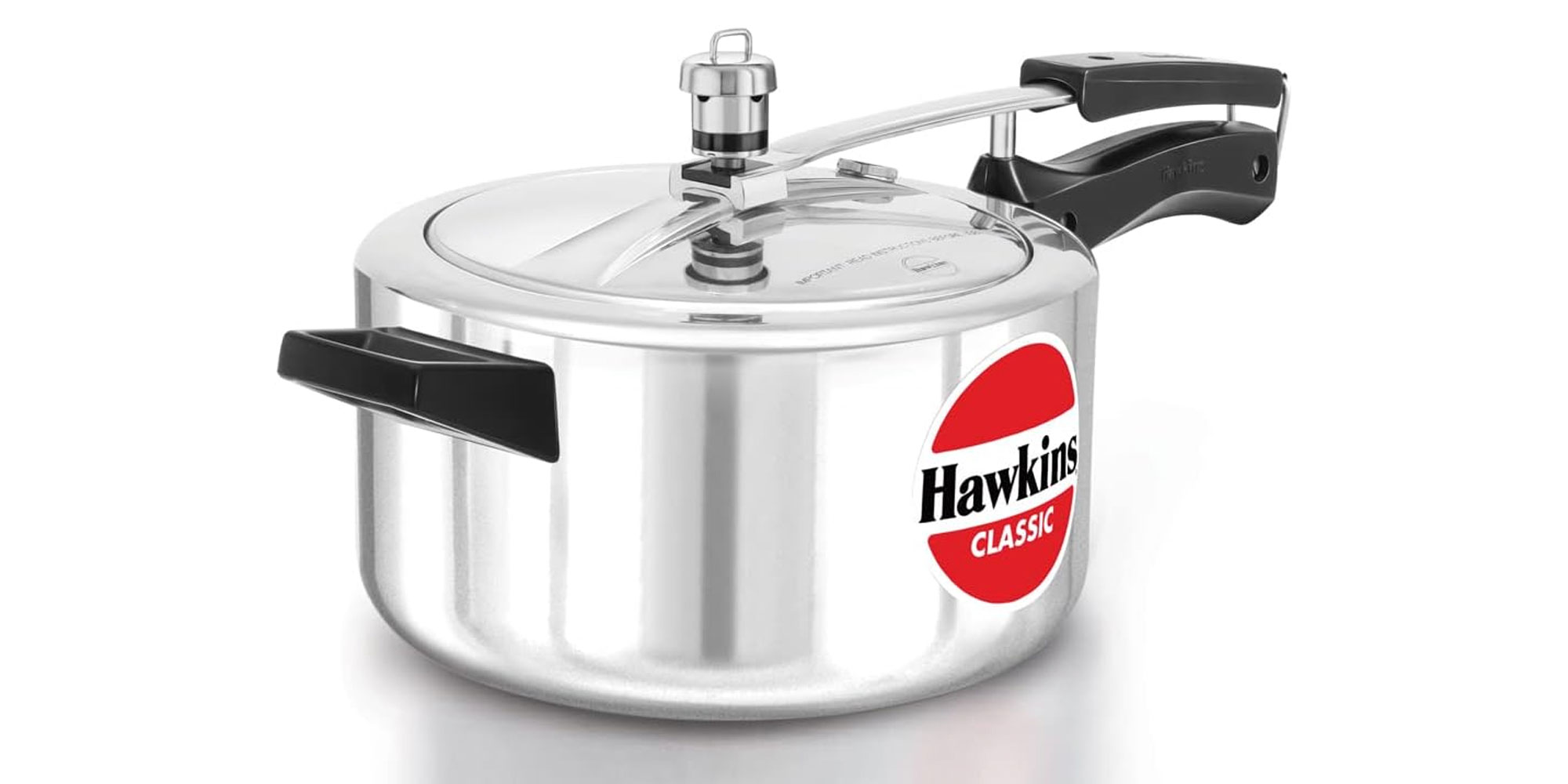
Most recently tested September 2025
Type Stove-top
Size and weight 20 x 42 x 23.5 (HxWxD); 2.4kg
Minimum and maximum usable capacity 0.25 litres; 3.2 litres
Need to know Works with electric and gas hobs, not dishwasher-safe, one pressure level, 5-year warranty, recipes and cooking time suggestions included, comes with a spare gasket and vent weight.
Check out our reviews of the best multi cookers and the best slow cookers
Instant Pot Classic 5.7L multi-cooker
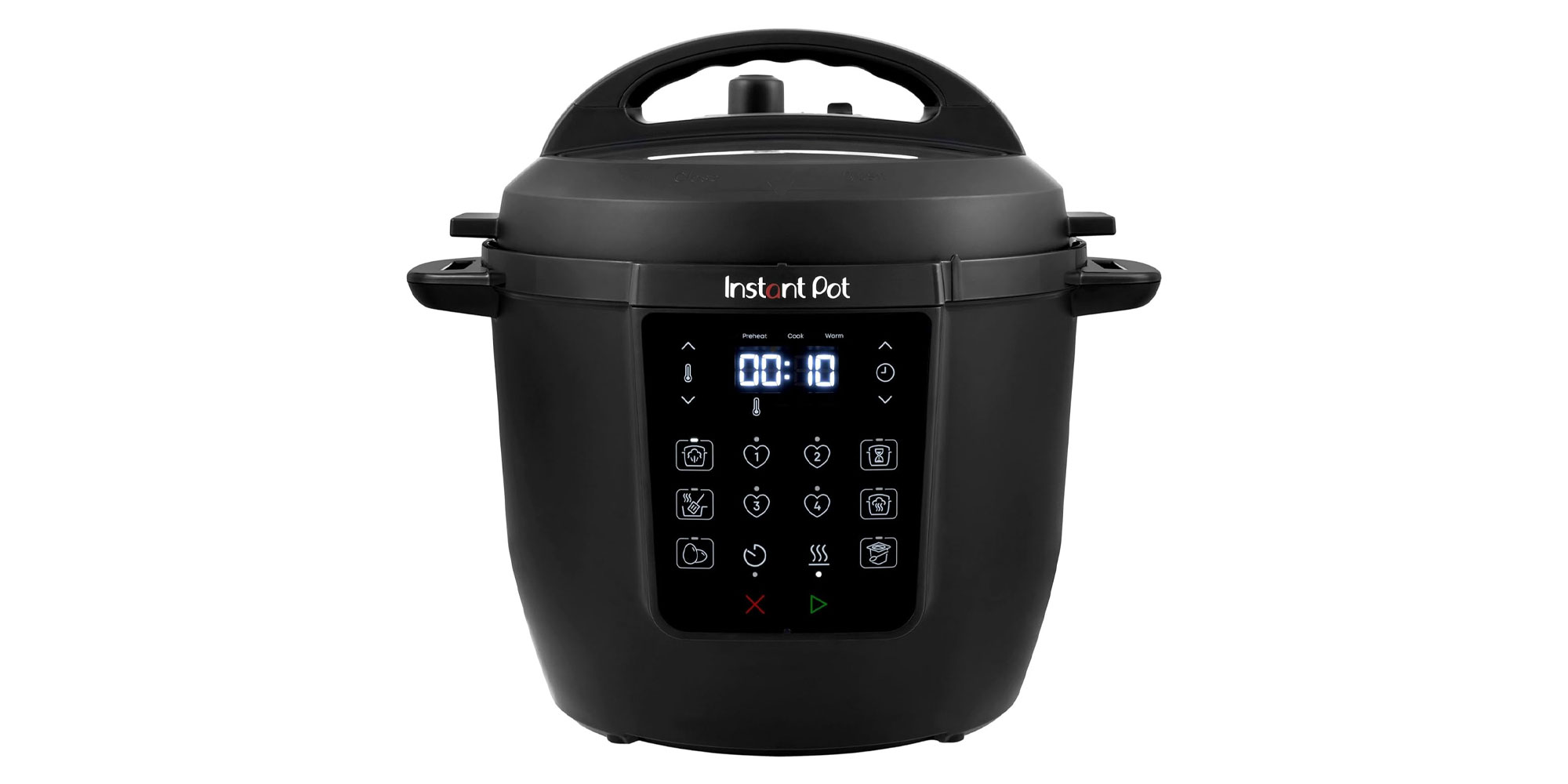
Most recently tested September 2025
Type Electric
Size and weight 32 x 35.1 x 30.8 (HxWxD); 5kg
Minimum and maximum usable capacity 0.375 litres; 3.8 litres
Need to know Inner pot and lid are dishwasher-safe, two pressure levels, one-year warranty, cooking time suggestions included, detachable power cable, steam rack included
Ninja Mini 6 in 1 OP100UK
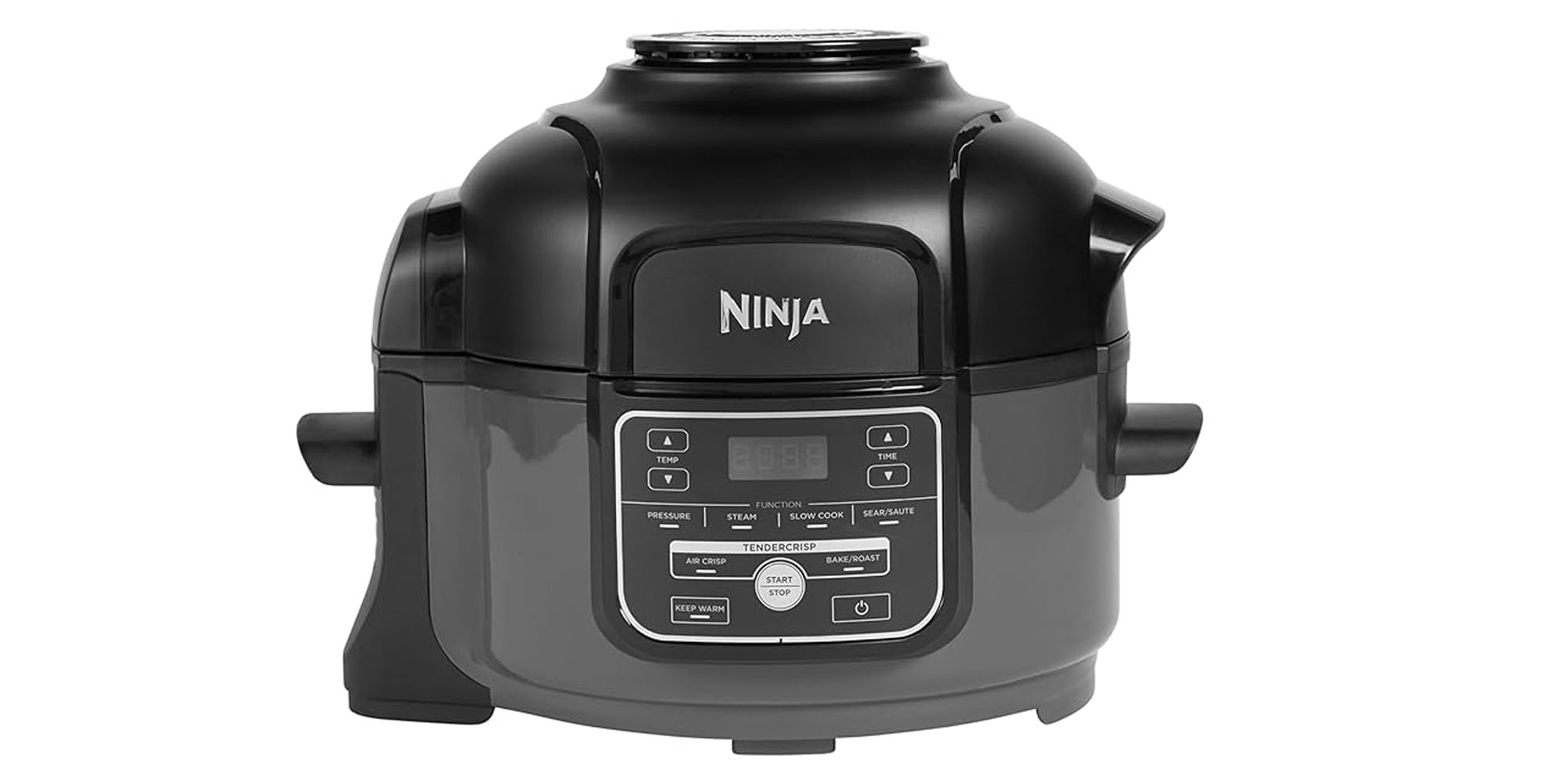
Most recently tested September 2025
Type Electric
Size and weight 31 x 39.5 x 32 (HxWxD); 9.1kg
Minimum and maximum usable capacity 0.25 litres; 3.1 litres
Need to know All accessories are dishwasher-safe, two pressure levels, two-year warranty (with registration), recipes and cooking time suggestions included, plus a Cook & Crisp Plate and a rack
Prestige 4 Litre Smart Plus Small Pressure Cooker

Most recently tested September 2025
Type Stove-top
Size and weight 21cm x 40cm x 22cm (HxWxD); 2.15kg
Minimum and maximum usable capacity 0.3 litres; 2.7 litres
Need to know Works with electric, gas, ceramic, halogen, induction and solid hotplate hobs, pot is dishwasher-safe, two pressure levels, lifetime warranty, recipes and cooking time suggestions included, plus a pressure valve cleaning brush
Sage BPR700BSS The Fast Slow Pro Slow Cooker

Most recently tested November 2023
Type Electric
Size and weight 32cm x 30cm x 37cm (HxWxD); 6.3kg
Minimum and maximum usable capacity 1 litre; 4 litres
Need to know Pot is dishwasher-safe, eight pressure levels, keep-warm and timer programs, two-year warranty, detachable power cable, recipes and cooking time suggestions included, plus a steamer basket and trivet
Tower 6 Litre Stainless Steel Pressure Cooker

Most recently tested September 2025
Type Stove-top
Size and weight 22cm x 43cm x 25cm (HxWxD); 2.5kg
Minimum and maximum usable capacity 0.3 litres; 4 litres
Need to know Works with electric, gas, ceramic, halogen, induction and solid hotplate hobs, pot is dishwasher-safe, two pressure levels, lifetime warranty, recipes and cooking time suggestions included, plus a trivet
More pressure cookers from our tests
Here's how the rest of the pressure cookers from our tests measured up, listed in alphabetical order.
| Pressure cooker | Price | Score | Type | Ease of use | Steam release | Max usable capacity |
|---|---|---|---|---|---|---|
| Amazon Basics Stainless Steel Pressure Cooker, 4L | SQUIRREL_TEXT_50001447 | Stove-top | 2.7L | |||
| Ikea 365+ Pressure cooker, stainless steel, 6L | Ikea (£59) | Stove-top | 4L | |||
| Instant Pot Duo 6, 5.7L | SQUIRREL_TEXT_12879355 | Electric | 3.8L | |||
| John Lewis JLPC166 Electric Pressure Cooker, 4L | John Lewis (£60) | Electric | 4L | |||
| Ninja OL750UK Foodi MAX 15-in-1 Multi-Cooker, 7.5L | SQUIRREL_TEXT_12864176 | Electric | 5L | |||
| Tefal CY505E40 All-in-One Pressure Cooker | SQUIRREL_TEXT_50001506 | Electric | 4L | |||
| Tefal Secure 5 Neo Stainless Steel Pressure Cooker, 6L | SQUIRREL_TEXT_12880645 | Stove-top | 4L |
Date tested: September 2025 & November 2023. Page last checked: November 2025. We are not able to show every retailer, and cheaper prices may be available.
How we test pressure cookers
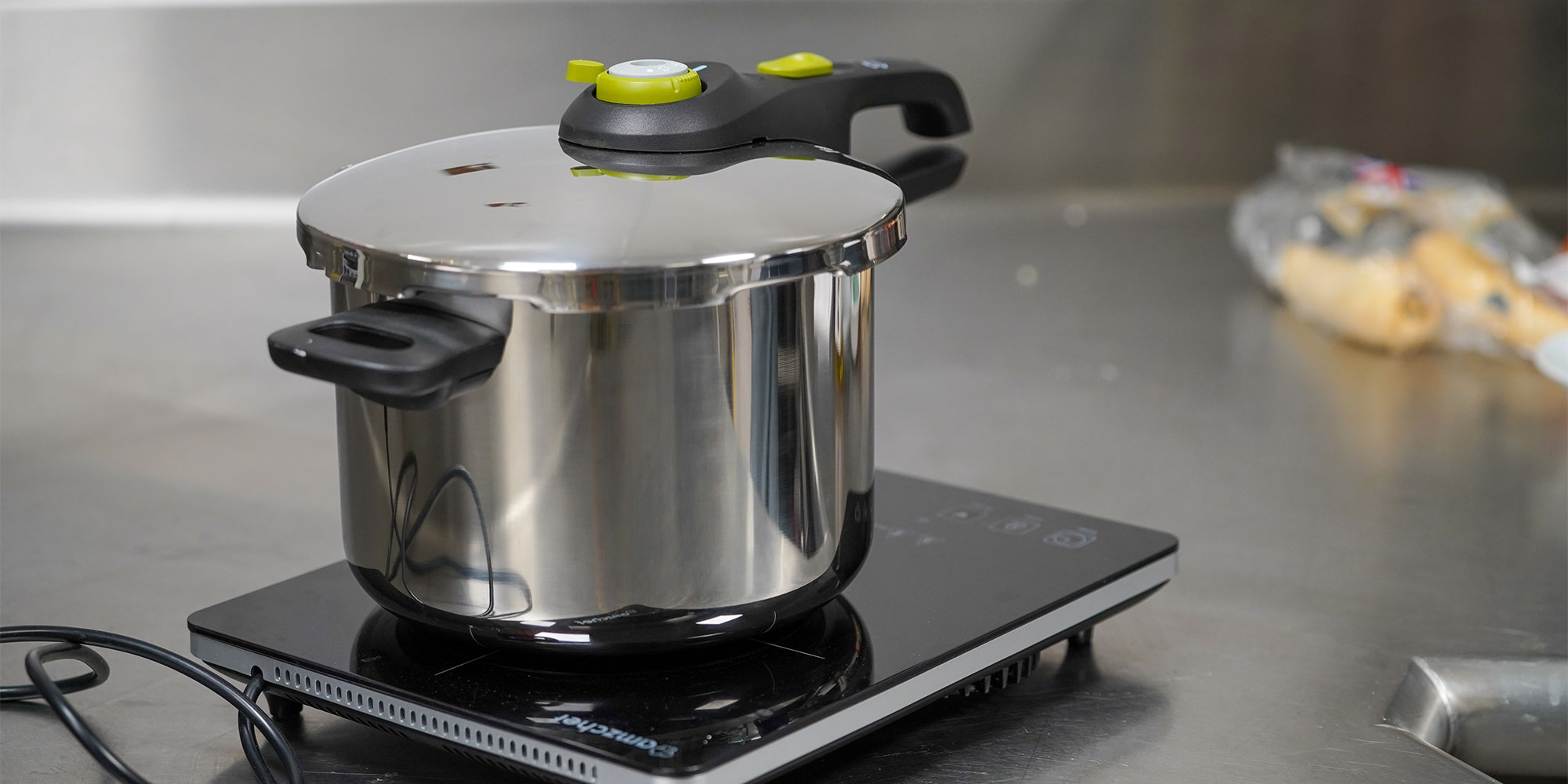
We select pressure cookers from retailers that UK consumers go to most when shopping for them, including a mixture of stove-top and electric options.
We buy every pressure cooker we test to ensure our reviews are fair and unbiased.
We regularly revisit the pressure cookers on sale to see if there are any more popular models that need testing, and when we find them, we do.
Ease of use, instructions and cleaning
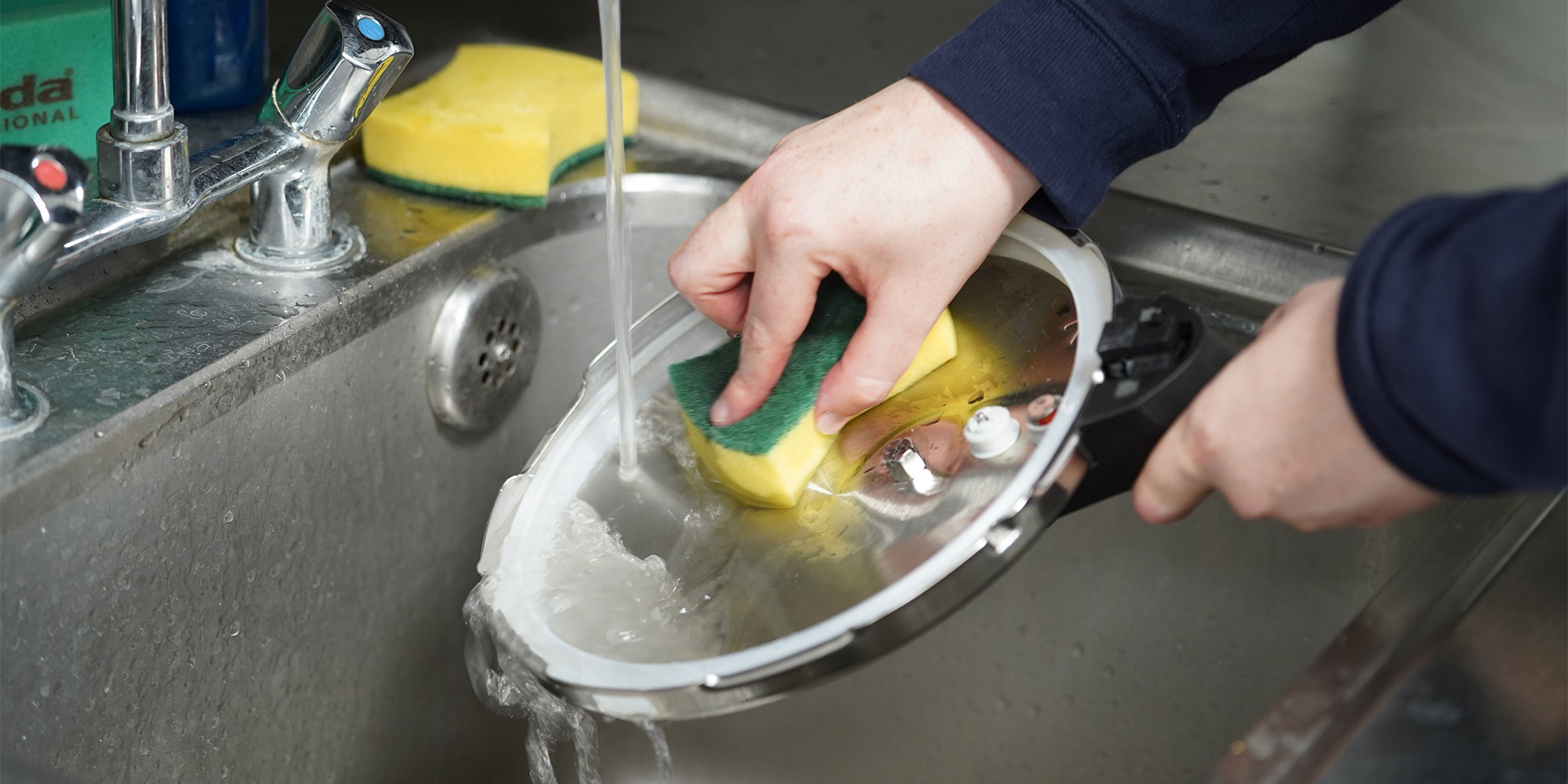
- We test how simple each pressure cooker is to set up and use, from intuitive controls like switches and buttons to how smoothly lids and pots can be removed.
- Clear, practical instructions are a must, so we assess each manual for guidance on cooking times and recipes.
- After cooking, we clean each model to see how hassle-free the process is - because no one wants a kitchen gadget that's a chore to maintain.
Cooking quality, speed and steam release
- To test performance, we cook the same beef stew in every pressure cooker, adjusting ingredient quantities to match its capacity. We check how evenly and thoroughly the stew cooks and time how long it takes.
- Electric models generally need around 25 minutes, while stove-top versions on an induction hob are ready in just 15.
- Steam release can make or break your experience. The best models either smoothly release steam automatically or release it in a controlled way after using a manual toggle. The worst models can release steam furiously - bursting out the vent and spitting water over your countertop.
Scratch resistance, storage and energy use
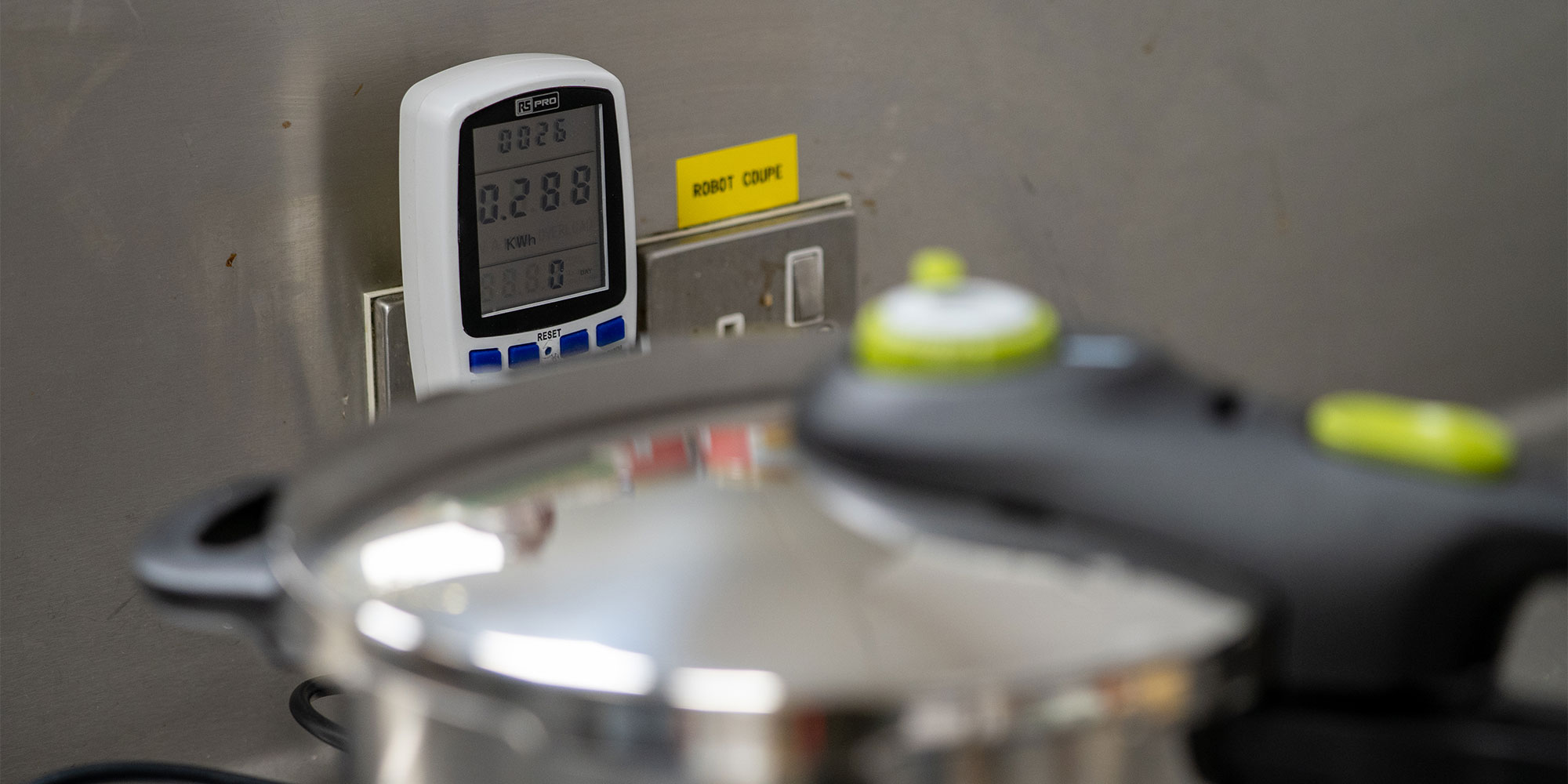
- A durable cooking pot is essential, so we use a lab-calibrated scratch pen to see how well each one stands up to repeated use.
- We also consider each pressure cooker’s size and how easily it fits into typical kitchen storage, giving a score calculated on the capacity they pack into their footprint.
- Throughout our tests, we use an energy-use monitor to track how much electricity each pressure cooker uses to cook the stew, but we've opted not to factor this into our judgments as the differences are fairly minimal. At the time of our most recent tests, the difference in yearly cost between the cheapest and most expensive-to-use pressure cookers was only about £20 – and that's if you use it every single day.
Why you can trust us: at Which? we're free from manufacturer and retailer influence. Find out more about our impartiality and how your support helps us to stay editorially independent.
What are pressure cookers best for?

Pressure cookers are perfect for fast, hearty meals. They quickly transform tough cuts of meat, dried beans and grains into tender, flavorful dishes such as stews, curries and soups. You can also whip up fluffy rice, creamy risottos, and even desserts such as cakes and cookies.
The big win here is speed. While slow cookers need hours, pressure cookers deliver similar tenderness in minutes - ideal for busy evenings or batch cooking. They also lock in nutrients and moisture, keeping meals healthy and tasty. With the right spices and ingredients, a pressure cooker can turn out a rich beef stew or fragrant curry that’s anything but bland.
Are pressure cookers energy efficient?
Pressure cookers are best for cutting down cooking times. Large potatoes, for example, can be perfectly pressure-cooked in as little as eight minutes.
This makes them far more energy efficient than other ways of cooking. The least energy-efficient pressure cooker we tested costs around 14p an hour to use, whereas an oven costs roughly 31p an hour.
Compare our reviews of the best saucepans and saucepan sets.
How to use a pressure cooker

- Prepare your ingredients and put them into the cooking pot. If you plan on sautéing first, heat the pot up with the lid off and brown the ingredients before adding in the rest of your ingredients. Most electric pressure cookers have a sauté program for this.
- Ensure that the liquid in the pressure cooker meets the minimum required amount before cooking. This is usually stipulated in the instructions or marked by a minimum fill line in the cooking pot. Make sure not to overfill the cooker, either – there will be a maximum fill line, so ensure that the food sits comfortably below it.
- Once you're ready to go, secure the lid of the pressure cooker. It should twist into a locking position that should prevent the lid from opening unless you press a release button.
- Set your stove to a high heat if it's a stove-top pressure cooker, or press start if it's an electric pressure cooker. As pressure builds inside, a safety pin should pop up that prevents you from unlocking the lid.
- After sufficient time has passed that your food should be cooked (either your recipe will say how long it should be or your electric pressure cooker will have finished its countdown), the pressure valve needs to be opened to allow the steam to escape.
- Once the cooker has depressurised enough, the safety pin will drop down, allowing you to unlock and open the lid. All being good, your food should be cooked and ready to eat.
Craving a bowl of perfectly fluffy rice? Check out our review of the best rice cookers.
How does a pressure cooker work?
Pressure cookers use a build-up of steam pressure to raise the temperature above the boiling point and force liquid into food, cooking it more quickly. There are two main types: traditional stove-top pressure cookers and the newer electric pressure cookers.
Pressure cooker types explained
Electric pressure cookers Standalone appliances, similar to multicookers or slow cookers, that effectively automate the cooking process. You simply select the pressure level or cooking function you want and press go, and an integrated timer will let you know when to release the pressure. This makes them a good option for people who are new to pressure cooking or those who don’t want to watch over their appliance. They take longer to cook than stove-top pressure cookers, though.
Stove-top pressure cookers Can initially be a little more daunting to use, as you need to use direct heat from the stove to help the appliance reach and maintain pressure. They’re often cheaper than electric cookers, though, and they can cook food much more quickly. You lower the pressure by either manually turning the pressure valve or by running some cold water over the lid. They can also double up as a saucepan.
